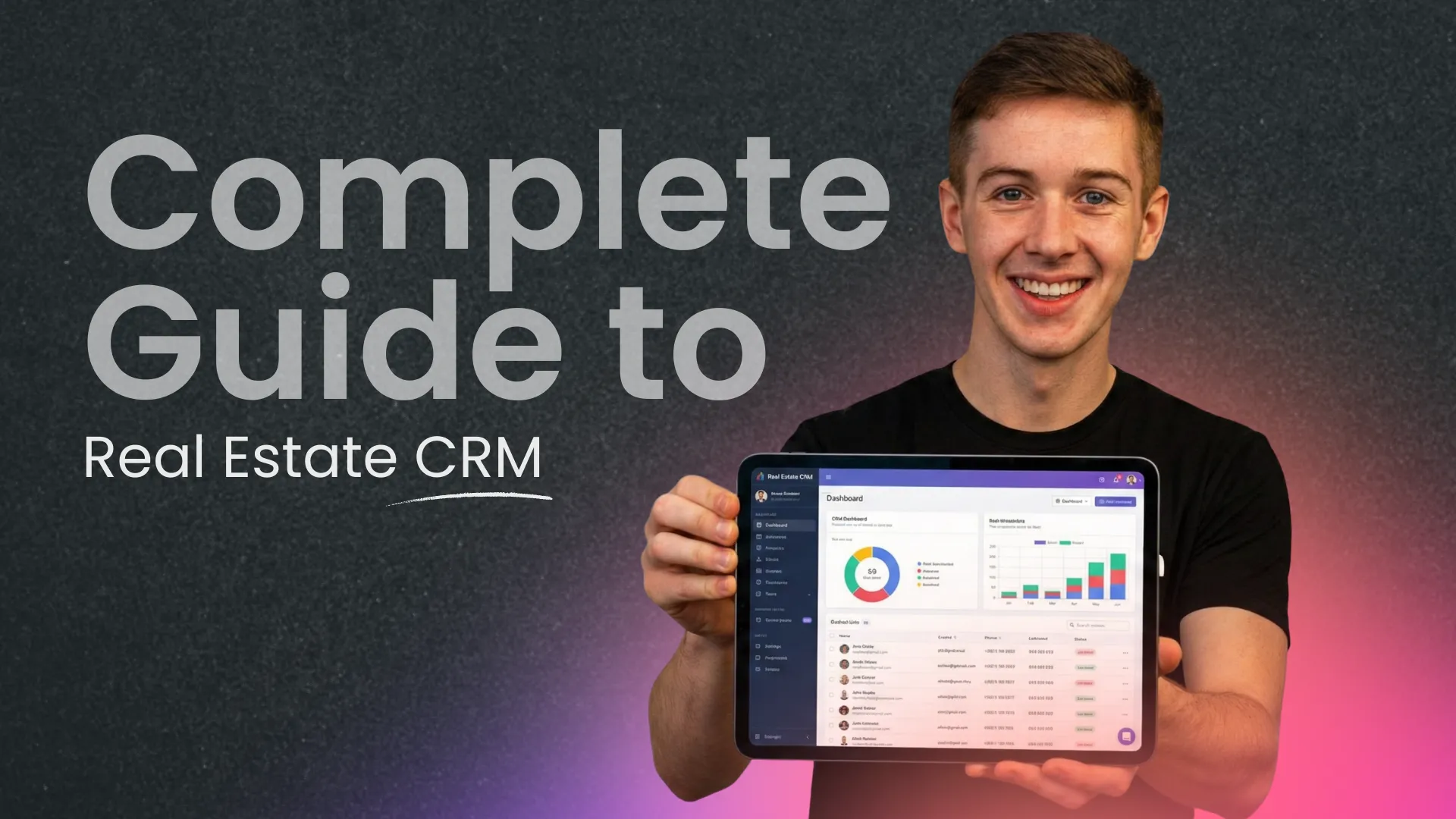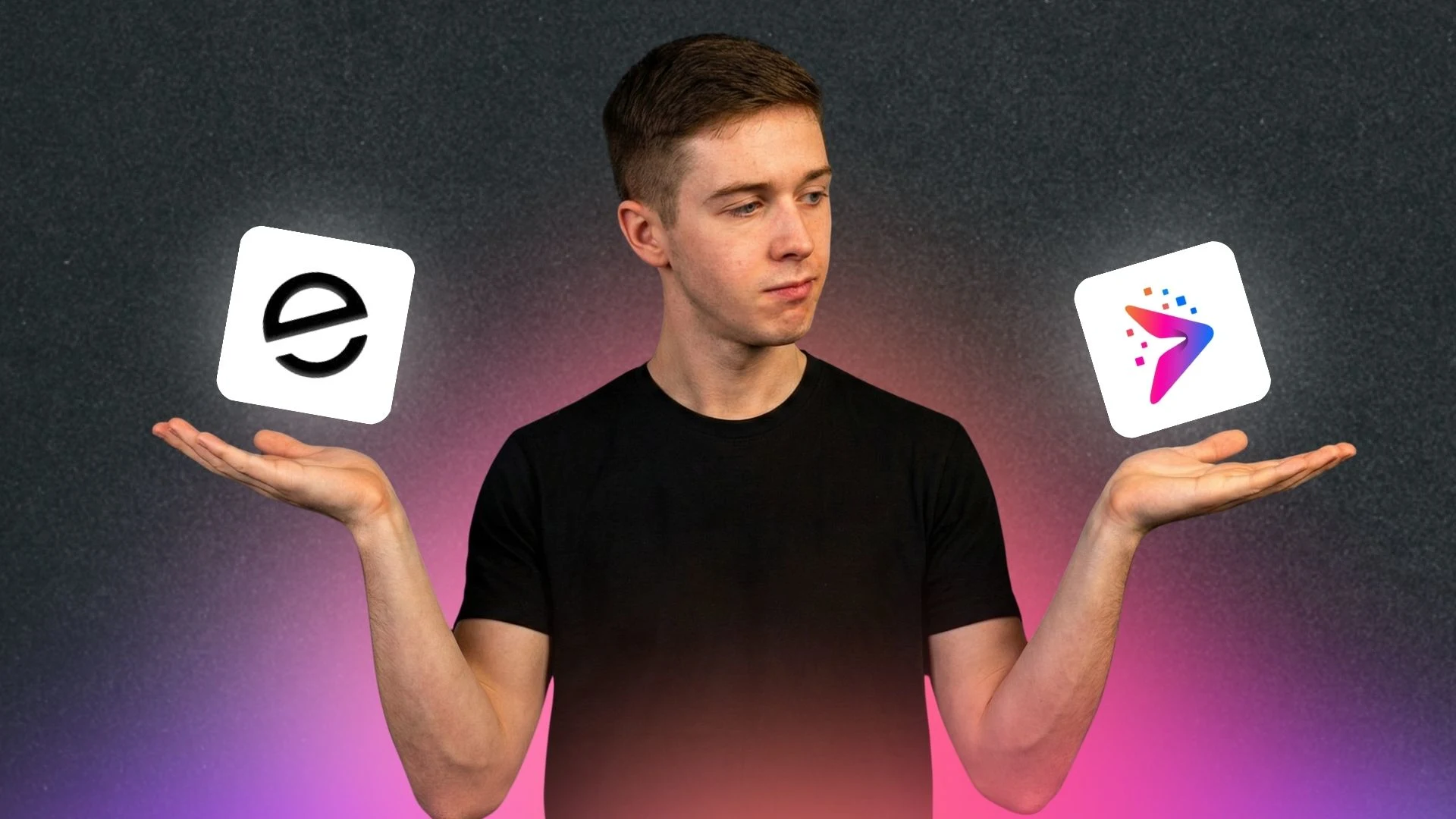AI-powered website builders have become essential tools for creators seeking to build professional websites without coding knowledge. These platforms use artificial intelligence to automate design, content generation, and layout creation, making the website creation process faster and more accessible.
They enable users to create high-quality websites simply by providing input, reducing the technical barriers that once made web design challenging. This shift allows creators to focus more on their content and goals rather than the technical details of website construction.
Launch Your App Today
Ready to launch? Skip the tech stress. Describe, Build, Launch in three simple steps.
BuildWith a growing variety of AI website builders available, each tailored to different needs—from blogs to e-commerce—users now have more options to find a tool that fits their style and purpose. This rise marks a significant change in how websites are crafted, empowering both beginners and experienced creators alike.
Understanding AI-Powered Website Builders

AI-powered website builders automate many steps in website creation, requiring no coding skills while delivering professional-grade results. They rely on advanced technology to generate layouts, content, and design elements faster than traditional methods, making web development accessible for creators of all levels.
What Are AI Website Builders
AI website builders are software tools that use artificial intelligence to design and launch websites. Instead of manual coding, these platforms interpret user input—such as text prompts or preferences—and automatically generate a complete site.
They typically combine machine learning and natural language processing to understand what the user needs. The user provides high-level guidance, and the AI fills in the details, from structure to content. This zero-code approach removes technical barriers for creators who lack programming experience.
How AI Transforms Traditional Website Development
Traditional web development requires writing code and manually designing layouts, often demanding significant time and technical knowledge. AI streamlines this by automating design choices, content generation, and optimization.
AI analyzes user inputs and adapts templates to fit specific goals. It can generate text, select images, and create responsive layouts instantly. This reduces development cycles from weeks or months to minutes or hours.
The technology enables rapid iteration, allowing creators to test and adjust the site quickly without deep involvement in coding. As a result, projects become more efficient and less dependent on specialized skills.
Benefits for Creators
Creators benefit significantly from AI website builders through increased speed and reduced costs. They can produce professional-grade quality websites without hiring developers or learning code.
The platforms offer intuitive interfaces and customization options that cater to various needs, from portfolios to e-commerce stores. AI-generated content and design suggestions enhance creativity by providing a solid foundation.
This approach democratizes website creation, empowering artists, entrepreneurs, and small businesses to establish an online presence effortlessly. Time saved on technical tasks can be redirected toward content and business growth.
Key Features of Modern AI Website Builders
Modern AI website builders focus on streamlining design, automating content creation, and supporting growth through reliable infrastructure and performance optimization. These tools deliver features that cater to both novices and professionals aiming to build functional websites quickly and securely.
User-Friendly Design and Workflow
AI website builders provide intuitive interfaces that simplify the entire process without requiring coding skills. They use AI-generated blueprints based on user inputs, instantly suggesting layouts and design elements tailored to business needs or personal style.
Drag-and-drop editors work alongside AI to customize pages effortlessly. The workflow often includes guided steps, pre-built templates, and real-time previews to minimize errors. Integration with platforms like AWS, GCP, or Vercel supports smooth deployment and hosting, further reducing technical barriers.
Security checks such as GDPR and SOC2 compliance are built into many platforms to protect user data and meet industry standards. This ensures that websites created are not only visually appealing but also safe and reliable.
Automated Content and Layout Generation
These builders leverage advanced AI algorithms to generate content and organize layouts coherently. They analyze user preferences and industry keywords to auto-create text, images, and SEO-friendly metadata without manual input.
Automation extends to page structure, where the AI decides the optimal arrangement of sections like headers, product displays, and contact forms. This reduces setup times from days to minutes. While content automation is powerful, users can still refine or replace generated material to maintain brand voice.
Basic SEO suggestions come pre-integrated, helping improve search rankings. However, these remain foundational and may require additional manual optimization for competitive markets.
Scalability and Performance
AI website builders often rely on scalable infrastructure to support site growth and traffic spikes. Hosting on cloud platforms such as AWS, GCP, or Vercel ensures fast load times and reliable uptime. This infrastructure scales automatically with visitor demand, preventing slowdowns.
Performance monitoring and optimization tools are common features, allowing users to track speed and fix bottlenecks. Some platforms include built-in CDN support and image compression powered by AI to enhance responsiveness.
Security measures, including regular audits and compliance with standards like GDPR and SOC2, protect websites as they scale. This combination of scalability, security, and performance suits creators expecting evolving needs and larger audiences.
How AI Empowers Creators and Agencies
AI tools have transformed how creators and agencies handle website and app development. They reduce time spent on routine tasks and enable focus on design and user experience, benefiting founders, solo makers, and small agencies alike.
Accelerating MVP Development
AI-powered builders allow creators to rapidly launch minimum viable products (MVPs). By automating layout design and content creation, developers can quickly test market ideas without extensive coding.
This speed grants founders and solo makers the ability to iterate based on user feedback sooner. Agencies also benefit by delivering faster prototypes to clients, improving project efficiency.
Key advantages include:
- Automated design and content generation
- Quick deployment with minimal technical input
- Early user testing to validate concepts
Simplifying App Creation for Non-Developers
AI tools enable non-technical users to build functional web apps with minimal learning curves. Using natural language prompts or guided templates, even those without coding skills can create professional sites.
This accessibility democratizes technology for solo makers and small agencies lacking dedicated developers. AI also supports expert collaborators by handling repetitive elements, allowing them to focus on advanced customization.
Features making app creation simpler:
- User-friendly interfaces with natural language input
- Integrated analytics and optimization suggestions
- Drag-and-drop components powered by AI logic
Supporting Multiple Projects
Small agencies and solo makers often juggle several projects simultaneously. AI-powered platforms streamline workflow by automating routine tasks like content updates, SEO monitoring, and user analytics.
This allows teams to manage multiple client sites efficiently without expanding staff. AI can also provide real-time recommendations, ensuring each project stays optimized and aligned with goals.
Efficiency benefits include:
| Task Automation | Impact |
|---|---|
| Content generation | Reduces manual writing workload |
| SEO analysis | Improves search ranking strategies |
| Performance analytics | Enables proactive site adjustments |
AI bridges the gap between limited resources and high-quality delivery in multi-project environments.
The Role of Human Expertise in AI-Powered Platforms
Human expertise remains essential in maximizing the potential of AI-powered website builders. Skilled professionals provide critical intervention, strategic insight, and problem-solving that automation alone cannot deliver. Their involvement ensures sites reflect thoughtful design, functionality, and business goals.
Combining Automation with Professional Guidance
AI streamlines repetitive tasks like layout structuring and content generation. However, human experts guide these processes to maintain brand identity and user experience. They analyze AI suggestions and refine designs, ensuring alignment with client requirements and market trends.
Creators often rely on professionals to navigate complex customizations that AI tools may not adequately address. This collaboration balances speed and creativity, producing higher-quality websites than either AI or humans could alone.
Key roles of professionals include:
- Reviewing AI-driven designs for usability and aesthetics
- Custom coding beyond AI capabilities
- Strategic decision-making based on industry standards
This expert backup elevates the output of AI tools, adapting automation to specific project goals.
Real-Time Support from Senior Engineers
Senior engineers provide critical real-time assistance during web development. They troubleshoot AI-generated code, debug complex issues, and optimize performance beyond AI’s automated capabilities.
Their expertise ensures seamless integration of AI tools with existing technologies and helps overcome technical limitations. When AI tools encounter errors or unexpected scenarios, these engineers intervene swiftly, maintaining project timelines and quality standards.
Senior engineers contribute by:
- Monitoring AI outputs for accuracy and security
- Customizing backend solutions in real-time
- Advising on best practices for scalability and maintenance
This hands-on support safeguards the reliability and functionality of AI-powered websites throughout development.
Imagine.bo: A Case Study in AI Website Building
Imagine.bo offers a streamlined AI website builder tailored for creators like writers, artists, and photographers. It emphasizes ease of use with chat-driven input and clear, tiered pricing options. The platform currently operates a private beta with a waitlist for new users.
Onboarding and Getting Started
Imagine.bo simplifies onboarding through a guided process where users describe their idea in natural language. Instead of complex menus, the builder interprets these descriptions to generate a website structure automatically.
This approach removes technical barriers, enabling creators without coding experience to launch a site quickly. Users join a private beta initially, often via a waitlist, granting early access and a chance to shape platform features.
The setup requires minimal input, focusing on the creator’s specific goals—portfolio display, blog, or business site. This direct communication style makes onboarding fast and intuitive, speeding up initial site creation.
Workflow Overview
The workflow centers on chat-driven commands where the user articulates their vision in plain language. Imagine.bo then builds the site with one click, adjusting design and layout based on the input received.
Users can refine the output through additional prompts, enabling iterative customization without coding. This process reduces manual effort and accelerates production timelines.
Key features include automated content arrangement, design consistency, and hosting integration. The platform prioritizes functionality for creative professionals needing a functional online presence quickly.
Beta Access and Pricing Structure
Imagine.bo operates a private beta phase, limiting new sign-ups via a waitlist to manage user feedback and platform stability. This controlled rollout helps refine tools before broader release.
Pricing is transparent with multiple paid plans, each aligned with different usage needs. The tiers vary by website features, storage, and support services, catering to individual creators and small teams.
Clear pricing details are available upfront, allowing users to choose plans without hidden fees. This structure supports informed decision-making for creators prioritizing cost-efficiency alongside AI benefits.
Choosing the Right AI Website Builder for Your Needs
Selecting an AI website builder requires assessing specific features, pricing models, and available support. Each element impacts how well the platform will serve the creator’s goals, budget, and technical skills. Understanding these aspects ensures a more informed choice tailored to current and future demands.
Evaluating Core Features
The essential features include design flexibility, AI-driven layout suggestions, and integration capabilities. Builders like Wix provide intuitive AI tools with responsive designs and SEO optimization. For creators needing more design control, options such as Framer offer granular adjustments over fonts, code, and positioning.
Analytics dashboards are a critical feature, enabling users to track site performance and user behavior without external tools. Integration with marketing tools and e-commerce platforms also adds significant value.
Users should consider how the AI supports their skill level: beginners may prefer guided setups, while experienced users might need advanced customization and coding access.
Comparing Costs and Scalability
Price structures vary widely, from free plans with limited features to subscription tiers offering additional storage, bandwidth, or premium tools. For example, free AI builders like Jimdo allow initial creation at no cost but charge for upgrades that improve site capacity and features.
Scalability is important for future growth. A platform should support expanding product lines, increased traffic, or additional pages without requiring a platform switch.
It’s helpful to review what each plan offers in terms of domain management, SSL certificates, and ongoing maintenance fees. Transparent pricing prevents unexpected costs as the site evolves.
Understanding Support Options
Reliable customer support can impact the user experience significantly. Many AI builders provide email support, chatbots, or live chat. Some include onboarding assistance to help creators understand platform capabilities.
Access to tutorials, forums, and knowledge bases equips users to troubleshoot independently. Platforms like Wix and Squarespace offer comprehensive documentation and community resources.
Creators should verify support hours, response time, and availability of specialized help for technical issues or complex integrations. Adequate support becomes critical as site complexity increases.
Overcoming Challenges and Limitations with AI Tools
AI-powered website builders present technical and operational challenges that must be addressed to ensure reliability, security, and user satisfaction. Key considerations involve safeguarding sensitive data, managing traffic spikes efficiently, and delivering tailored yet consistent website experiences.
Addressing Security and Compliance
Security is a critical concern when using AI tools for web development, especially given the sensitive data involved. Builders must integrate rigorous security checks, including compliance with regulations like GDPR and standards such as SOC 2.
Regular vulnerability assessments and data encryption protocols protect user information from breaches. AI systems should also provide transparency in data handling, allowing creators to monitor how customer data is stored and processed.
Implementing role-based access controls and automated threat detection enhances security layers. Meeting these compliance requirements not only mitigates legal risks but also builds trust with end users by prioritizing data privacy.
Handling High Traffic and Scaling
AI website platforms must accommodate fluctuating web traffic without performance degradation. A scalable infrastructure is essential, employing cloud technologies that dynamically allocate resources based on real-time demand.
Load balancing techniques distribute user requests efficiently across servers to prevent bottlenecks. Additionally, AI-driven predictive analytics can forecast traffic spikes, enabling preemptive scaling actions.
By leveraging content delivery networks (CDNs), these tools reduce latency and improve global access speed. Scalability ensures creators’ websites remain functional and responsive under peak loads, maintaining user engagement and uptime.
Ensuring Quality and Customization
Maintaining high website quality while offering customization options is a common limitation in AI builders. They must balance automated design suggestions with user-driven modifications to fit unique branding needs.
AI can generate optimized layouts, but creators need intuitive controls to refine styles, content, and functionality. Incorporating feedback loops allows the AI to learn from user adjustments, improving future recommendations.
Quality assurance processes, such as automated testing for broken links and mobile responsiveness, help maintain standards. This combination of AI assistance and manual control supports diverse creator preferences without sacrificing reliability or aesthetics.
Future Trends in AI Website Builders for Creators
AI website builders are evolving rapidly, targeting more diverse applications and integrating with emerging technologies. Their market value is also projected to grow significantly in the coming years, reflecting broader adoption.
Expanding Use Cases Beyond Websites
AI builders are moving past creating simple websites. They now support complex digital projects such as e-commerce platforms, portfolios, blogs, and interactive landing pages. Creators can generate hyper-personalized content tailored to specific audiences automatically.
Additionally, AI tools will streamline management tasks like SEO optimization, analytics, and real-time content updates. This shift allows creators to focus more on creative work while technology handles technical upkeep.
The increasing versatility means AI builders will accommodate a wider range of industries and business needs, making them indispensable in digital content creation.
Integration with Advanced Technologies
AI website builders are incorporating advanced technologies such as voice recognition, augmented reality (AR), and machine learning algorithms. Voice commands enable hands-free site creation and editing, improving accessibility and speed.
AR features can enhance user engagement by allowing interactive product displays or immersive brand experiences within websites. Machine learning improves design suggestions and user interface personalization based on visitor behavior patterns.
These integrations foster smarter, more intuitive interfaces that adapt dynamically to both creator preferences and user interactions, pushing website building beyond static templates.
Predicted Market Growth
The AI website builder market was valued around $3.17 billion recently. It is expected to grow sharply, reaching over $31 billion by 2030.
This growth is fueled by increased demand from freelancers, small businesses, and enterprises seeking efficient site creation solutions. The reduced need for coding skills and the capacity to rapidly deploy customized sites make these tools appealing.
Investments in AI development and broader digital transformation efforts will continue to expand both product capabilities and user bases, solidifying AI website builders as a mainstream resource.
Launch Your App Today
Ready to launch? Skip the tech stress. Describe, Build, Launch in three simple steps.
Build





